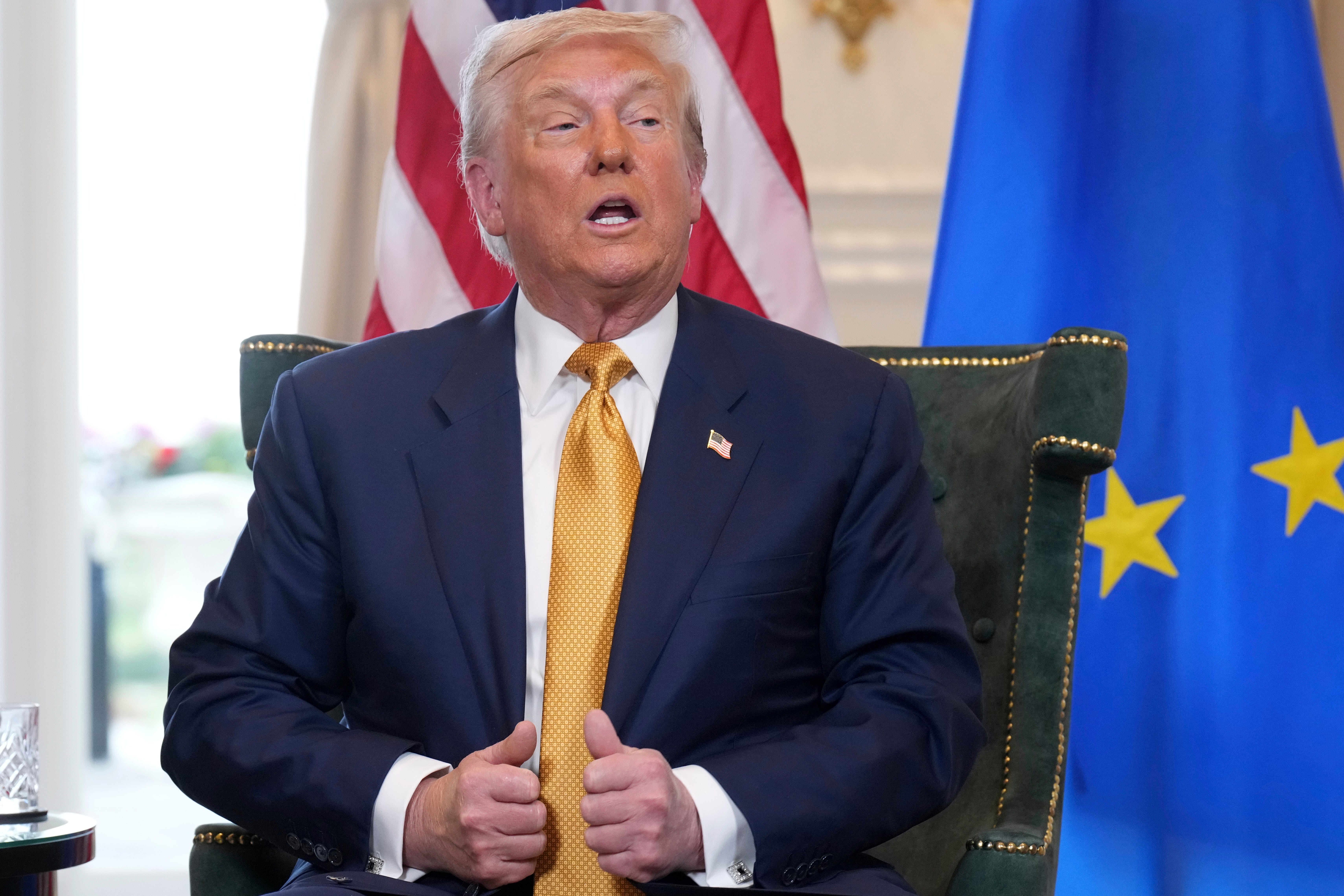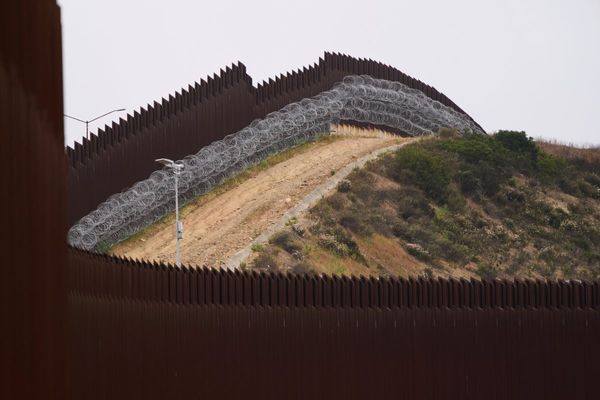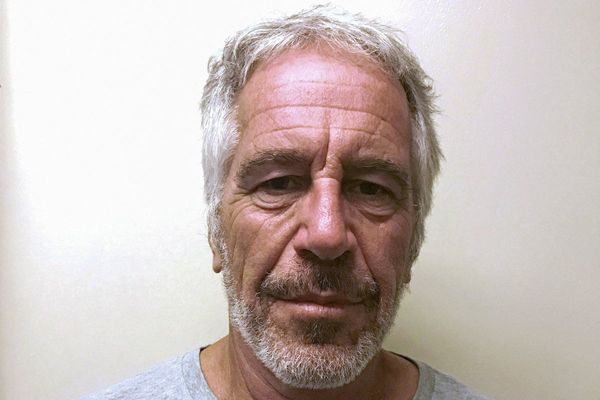Donald Trump announced a trade agreement with the European Union Sunday that will cut tariff rates down to 15 percent on imports from the trade bloc, while US exports will be tariff-free.
The president spoke alongside European Commission President Ursula von der Leyen at his Turnberry golf course in Scotland as he announced the news.
“All of the countries will be opened up to trade with the United States at zero tariff [for U.S. exports],” Trump told reporters, shaking Von der Leyen’s hand.
“We are agreeing that the tariff straight across for automobiles and everything else, will be a straight across tariff of 15 percent. So we have a tariff of 15 percent; we have the opening up of all of the European countries, which I think I could say [those markets] were essentially closed,” said the president. He also touted a number of impending EU investments, including a purchase of military materials.
Von der Leyen confirmed: “It is 15 percent tariffs across the board.”
“We have a trade deal between the two largest economies in the world, and it’s a big deal. It’s a huge deal. It will bring stability. It will bring predictability. That’s very important for our businesses on both sides of the Atlantic,” said the European Commission president.
The announcement comes ahead of the Trump administration’s planned August 1 deadline for enforcement of the president’s so-called “reciprocal” tariffs. Trump had threatened to hike that rate to 30 percent in a letter this month.
Asked about U.S. concessions in the deal, and the apparent imbalance of the U.S.-E.U. tariff rates going forward, Von der Leyen cast the agreement as meant to address existing issues, and told one reporter: “The starting point was an imbalance, a surplus on our side and a deficit on the U.S. side.”
In April, the president announced a slew of new “reciprocal” tariff rates with individual countries and trading blocs, including the European Union. That announcement sent markets into a spiral, and the resulting furor on Wall Street led Trump to call for a 90-day pause. His decision was then met with mockery by some in the financial sector who came up with a derisive nickname for Trump: “TACO” — Trump Always Chickens Out.
That pause ended in July. Possibly incensed by the criticism, the president announced that he was forging ahead with his intended reciprocal tariff plans. The administration told reporters ahead of its conclusion that the president would begin sending letters to foreign leaders informing them of tariff rates that would apply on August 1, in addition to the flat 10 percent across-the-board rate implemented earlier.
European automakers were set to be one of the biggest losers in a situation where Trump and the EU did not reach a deal. But, now they will pay a 15 percent tariff instead of a 25 percent fee. The U.S. also imports pharmaceuticals from Europe to the tune of $130 billion a year.
Consumers typically pay for the cost of tariffs as manufacturers pass on the increased fee. Some economists have warned that Trump’s plan will lead to more inflation.

Also on Sunday, the president briefly answered questions from reporters, though he claimed not to hear one about his deputy attorney general (and former personal attorney)’s meeting with Ghislaine Maxwell, imprisoned accomplice of Jeffrey Epstein.
He also claimed to have told the respective leaders of Cambodia and Thailand that the two countries needed to cease armed clashes along their respective borders in order to secure trade agreements with his administration. The president would go on to complain that the U.S. was not sufficiently praised for its investment in the Gaza Humanitarian Foundation, an Israeli-led effort to provide aid in Gaza that appears to have utterly failed to avert widespread famine and has long been labeled an effort by the Israeli government to save face by its critics.
Further information about the agreement was not immediately released by the White House, either to pool reporters or through other media channels.
The news was met with mixed reactions in the U.S., given that the tariff rate remaining in place after August 1 will still be higher than it was when Trump took office.
But some industry groups celebrated the news as the best many were hoping for, given that rates were set to be hiked even further if a deal hadn’t been struck.
Chris Swonger, president and CEO of the Distilled Spirits Council, was one voice touting the news as progress on Sunday. American liquor producers represented by his group were among the businesses likely to be targeted by specific EU tariffs in the event of a US-Europe trade war.
“This is great news for U.S. and EU relations and we greatly appreciate President Trump’s leadership,” said Swonger. “We are optimistic that in the days ahead this positive meeting and agreement will lead to a return to zero-for-zero tariffs for U.S. and EU spirits products, which will benefit not only our nation’s distillers, but also the American workers and farmers who support them from grain to glass.”
Trump says US gave $60 million for food in Gaza - then complains he didn’t get a thank you
Starmer must take a strong line with Trump to relieve the suffering in Gaza
TACO not on the menu: Howard Lutnick says tariffs start August 1 with no extensions
Donald Trump seen golfing at start of five day private visit to Scotland
Trump claims ‘migrant invasion is killing Europe’ during Scotland visit
Hong Kong's CK Hutchison seeks Chinese investor to join Panama Ports deal
Powerful sister of North Korean leader Kim rejects South Korea's appeasement overture
US and China to talk in Stockholm on trade with eye on Trump-Xi summit later this year







